Project and Water News
CI-WATER Researcher's work on stochastic models featured in article
Congratulations to Spencer Taylor, a graduate student at Brigham Young University (BYU) and researcher on CI-WATER! Ian Armas Foster’s article “Running Stochastic Models on HTCondor” describes Spencer’s analysis of the open source software HTCondor as applied to a water resource model being used in the CI-WATER project.
More Information...June 11, 2013
BYU Code Camp a whole lot of fun
“Look at that—look at that! That’s beautiful!”
Simulating a massive flooding event might not be every kid’s idea of a good time, but for the teens in the CI-WATER Engineering and Code Camp at Brigham Young University (BYU), it’s proving to be a whole lot of fun.
Twenty-four teens aged 14 through 17 have gathered on the BYU campus, where CI-WATER researchers have been taking them through a day of activities to boost their skills and introduce them to concepts and opportunities in engineering and computer science. The camp is proving to be a valuable opportunity to have fun and learn from people who share their interests.
“The people in charge are really experts in their field,” Danny, a student from Tooele, says. “There aren’t a lot of people near where I live that do this sort of thing.”
Bryce, who started computer coding on his own two years ago, says he especially appreciates the exposure to civil engineering concepts. “They did a good job explaining it.”
The day’s highlights have included rescuing Barbie and Ken dolls from drowning in the Fluid Hydraulics Lab, learning how smashing eggs on a colleague can aid in research, and visiting BYU’s new Computer Assisted Virtual Environment (CAVE) to learn how LIDAR data helps in computer visualization (and that miscalculating the distance between someone’s eyes can result in some unpleasant visual effects).
Participants also piloted two water management card games—“Water Ever” and “Flood, Sweat, and Tears”—which are designed to teach risk management and water management concepts. Four computing challenges, interspersed throughout the day, built understanding of probability analysis and computer modeling, moving from football team predictions to using computer modeling to save the President from a zombie apocalypse and simulate massive flooding events.
CI-WATER Principle Investigator Norm Jones believes strongly in events such as the BYU Engineering and Code Camp: “When I was in high school I knew very little about careers in science and engineering. It is very rewarding to expose them to so many exciting opportunities and to see them respond so positively.”
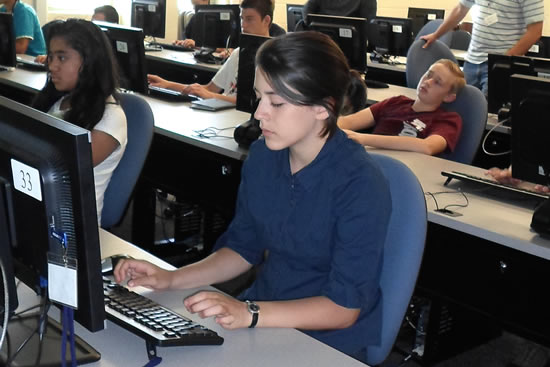
Teens gather for a series of coding activities in the BYU Engineering Computer Lab.
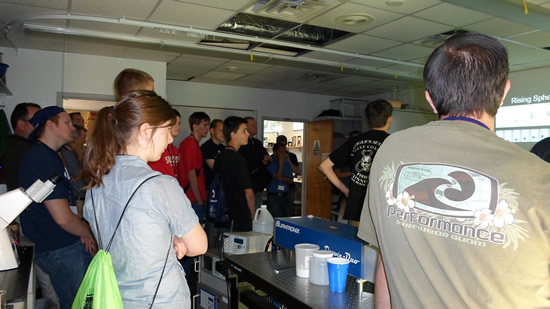
CI-WATER Engineering and Code Camp participants listen to graduate student researchers in the BYU Splash Lab.
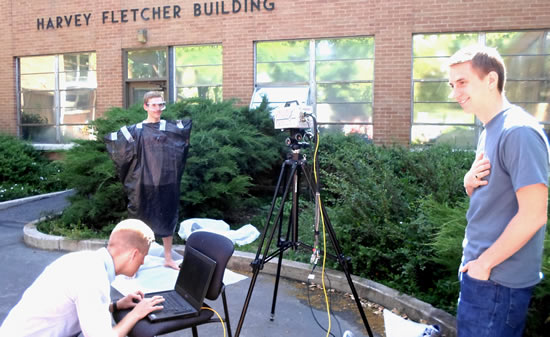
BYU Splash Lab researchers demonstrated how they use a high-speed videocamera in their work.
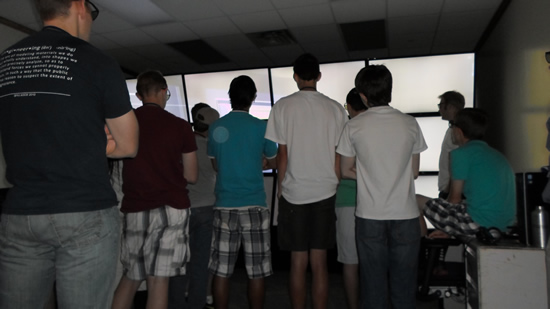
Researchers at BYU spent June 11 introducing youth to engineering and computer modeling at the CI-WATER Code Camp.
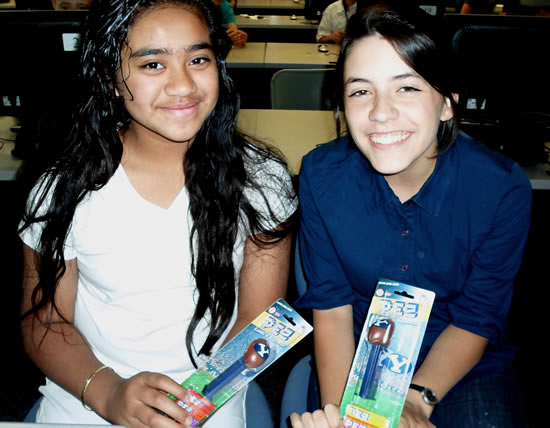
The winners of a CI-WATER/BYU Engineering and Computer Coding Camp challenge show off their prizes.
June 7, 2013
Research program for high school students begins
CI-WATER partner, Wyoming EPSCoR, is gearing up for its Summer Research Apprentice Program (SRAP). On Saturday, June 8th, twenty-two high school students from across the United States will travel to the University of Wyoming where they will spend six weeks gaining hands-on experience in scientific research. This year, students will work in fields as varied as Watershed Management, Chemical Engineering and Psychology. At the end of the program, each student will give an oral presentation of their research to their colleagues and the SRAP mentors. SRAP is Wyoming EPSCoR’s longest running program.
June 3, 2013
Computing Boot Camp for Postgrads and Scientists, July 16 and 17
On July 16 and 17, CI-WATER partner Utah State University will be the site of a two-day boot camp for scientists and engineers who want to become more productive by learning basic computing skills such as program design, testing and task automation. Short tutorials will alternate with hands-on practice in a collaborative environment.
This event is offered by the CUASHI Water Data Center, which is part of the Consortium of Universities for the Advancement of Hydrologic Science (CUAHSI). CUAHSI represents more than 100 universities and water science organizations. CUAHSI receives support from the National Science Foundation (NSF) for the advancement of water science in the United States.
More Information...






